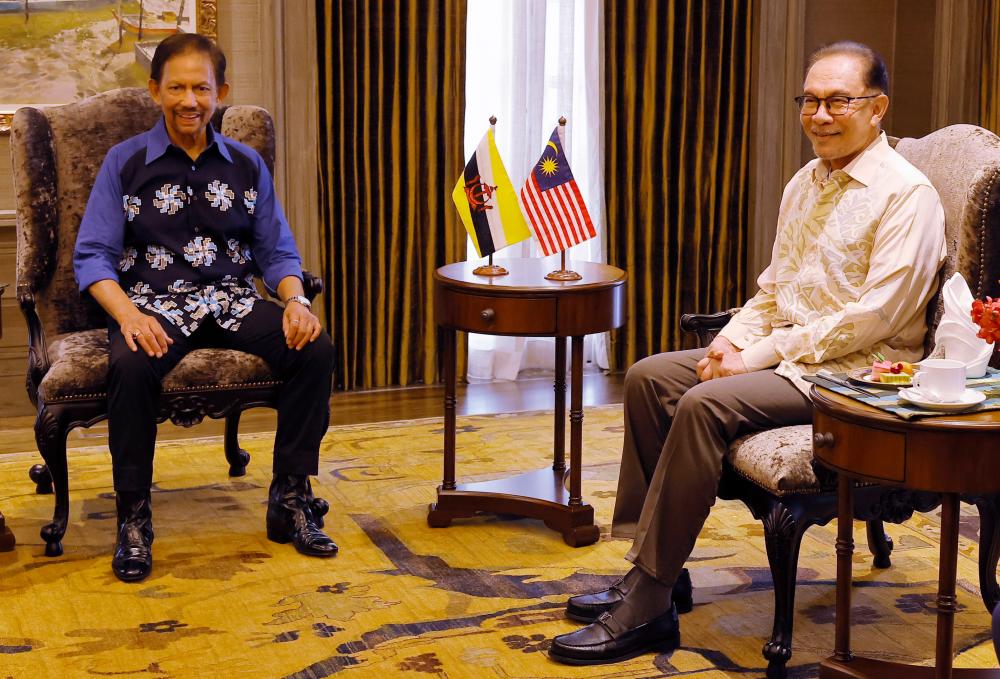PETALING JAYA: Since Datuk Seri Anwar Ibrahim was appointed Malaysia’s 10th prime minister, a lot of attention has been drawn to the congratulatory gestures he received from leaders around the world.
They included personal phone calls from Turkiye President Recep Tayyip Erdogan, Indonesia President Jokowi Widodo and Singapore Prime Minister Lee Hsien Loong, and a surprise visit from the Sultan of Brunei, Sultan Hassanal Bolkiah ibni Omar Ali Saifuddien III.
On the call from Erdogan, Turkiye ambassador to Malaysia Emir Salim Yuksel said it indicates close bilateral relations between the two countries and strong ties between both leaders.
“The comprehensive strategic partnership of two important countries should be the basis of cementing and furthering cooperation in all fields of relations. It is high time after the end of Covid-19, to focus on deepening and creating synergies in the fields of defence, trade, culture, investments and counter-terrorism,” Emir Salim said.
But how does Anwar’s standing as a globally recognised leader improve the dynamics of Malaysia’s international relations, and enhance bilateral negotiations and trade ties, especially when the world is expecting a global economic recession next year?
Universiti Selangor vice-chancellor and founder of the University of Malaya Centre for Democracy and Elections Prof Datuk Dr Mohammad Redzuan Othman said the accolades Anwar has received show he has strong international support.
“When Anwar was in the Cabinet in the 1990s, his presence at international or bilateral events was celebrated by world leaders. Even after he was dismissed as deputy prime minister and upon his release from jail, he was invited to international dialogues as an honourable guest.
“Over the years, Anwar has been fostering healthy political relationships with world leaders. In today’s context, the relationships translate to bilateralism, where two sovereign states cooperate to bridge political, economic and cultural relations between their peoples.”
Mohammad Redzuan said the personal calls not only mean Anwar is Malaysia’s number one representative, but also a statesman who could be trusted in handling global issues.
“With these calls, Anwar is presented as a statesman who is backed by world leaders who are also renowned statesmen, like Jokowi, Erdogan, Lee and Sultan Hassanal,” he said, adding that the calls augur well for future regional cooperation and integration between Malaysia and its neighbours.
On Sunday, Anwar’s third day as prime minister, he received a congratulatory video call from the former prime pinister of the Palestinian National Authority, Ismail Haniyeh. This was followed by a phone call from Hamas leader Khaled Mesh’al.
On the issue of Palestine, Universiti Teknologi Mara School of Media and Information Warfare Studies Security and Political analyst Dr Noor Nirwandy Mat Noordin said it was important for Anwar to clarify Malaysia’s stance in promoting peace in the region.
“It is important to carry forward the trust of Palestinian leaders and its people. On our international stance regarding the conflict, Malaysia must continue pushing the solutions.”
In the context of stability and confidence of the people, Noor Nirwandy said it was important for Anwar to be recognised internationally as a prime minister needs to be respected.
“Apart from that, Anwar has to pick a good team that understands diplomacy, diplomatic language and strategies to ensure Malaysia’s international relations are held in high regard.”
Noor Nirwandy also said as a nation that practises syariah and civil components in its administration and governance, Malaysia must be a role model in accommodating the unity of its people and promoting peace.













